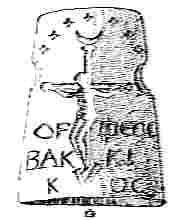THE DIFFERENCES BETWEEN THE HELLENIC AND THE CHRISTIAN VIEW
ABOUT THE PSYCHE.

Christianism, in line with the Jewish religion, initially did not acknowledge the existence of the Psyche. Only after 1700, in a local, non-ecumenical synod, the existence of the Psyche was recognized in Man, under the proselytizing pressure of Islam (animal are still considered to have no Psyche). Nevertheless, this was done in a superficial manner, because there is no provision of a place for the Psyche to dwell after death. Let it be reminded that Christianity acknowledges only one life; reincarnation is denied.
Christians expect the resurrection of their bodies on the day of the judgment, materially and morphologically identical with their present body; they seem not to understand the fact that the same atoms of chemical elements are recycled continuously in the cycles of life, and that, consequently, material resurrection of the dead would necessarily involve sharing of the same mater by several, uncountable persons.
After death and until the second coming of Christ, the Psyche is left in plain non-existence. On the contrary, all the traditional religions believe that the Psyche is the "flower of the human essence" (as Proclus put it), that evolves to human perfection through reincarnation, until it enters the Higher Worlds; there, the Psyche evolves infinitely, to ever higher levels of divinity.
The consistency of the Psyche is thought to be non-material, in line with the basic dualism (Spirit-Matter) of christianism and all monotheism. The Spirit of the Psyche comes from the Spirit of God, which is a non-definable, non-material entity, analogous to the Ruah of Judaism. The existence of Ruah "solves" the problem of communication between God and Man, because supposedly it is common to both; otherwise, Spirit and Matter are incompatible and mutually exclusive entities.